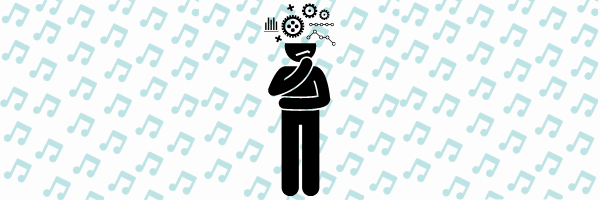The Art of Self Analysis

Everyone wants to be a better player; that’s why we practice. Being able to look at your own playing and see what works and what needs improvement is an art in itself. Even if you are working with an instructor you need to be able to objectively look at your own playing. Here are a few pointers that might help.
The most important thing you can do to improve is to record your playing, both on the bagpipes and the on the practice chanter. Know the saying "pictures don’t lie"? You know, that feeling you get when you see a photo of yourself and it doesn't quite match up to the picture that you had in your head?
The same can be said for recordings. A recording will allow you to hear things that you normally wouldn’t in your own playing, while you're stuck in the moment of remembering the tune, stressing about playing that embellishment you struggle with, or trying to hold that note or hit that beat. Often you'll have played some things far better than you imagine you did, when you listen back to the objective recording of it. And some things, like crossing noises or rushing sections, you may not even realise you're doing until you hear them through an "outside ear" – in this case, an electronic one.
The point of listening to recordings of your playing is to improve. You need to be critical of your playing, but not too critical. While it’s true that your playing will probably sound better to you as you are playing it, it will sound worse than you think when you listen to it.
You have to be able to find the problems in your playing but you can’t go overboard. Even when you listen to yourself play you brain will try and fill in the missing pieces of the music and this will cause you to miss things. You have to focus on the music as it should be.
One problem that you will likely run into is thinking your playing sounds terrible. This is especially true the first few times you listen to it. You are going to be thinking about how you remember it and hearing it is a bit jolting. Gracenotes will be more open than you remember. Your ALAP/ASAP will not be as good as you thought.
This doesn’t mean that you have a bad ear, or don’t understand the music, but the mind plays tricks on you. When you are playing you have the music memorized or on the page in front of you. You are going over the music in your head at the same time as you play it and most people will tend to hear the music as it is supposed to be played, not as it actually is.
Things just sound different to you than they to do everyone else. Sound tends to vibrate around in your head, giving sounds a slightly deeper tone. This is especially true if you wear ear plugs while playing. The best example is how your voice sounds on a recording. It always sounds different than you think.
You have to listen to many of your recordings and you have to listen to each recording several times. The first one or two times you listen to it you will be fighting with your brain to hear how it really sounds and not how you think it sounds. Once you get past that you will be able to pick out the more subtle areas that need improvement.
It is important that you have the sheet music in front of you as you listen. Use your finger, or a pointer, to follow along with the music. This will help you find the harder to spot mistakes. Playing a single grace note instead of a doubling, or playing a G grace note instead of an E.
You also need to have other people listen to the recordings. Chose someone who can give you honest feedback, and someone who knows how it is supposed to sound. An instructor, a pipe major or even just a friend in the band. Being able to compare their feedback with your own will give you a better insight. It will also help keep you from being overly critical of yourself.
You also need distance from your playing. Immediate feedback is important, as it lets you work on the really rough areas. But with time, you have a better chance of finding the minor details.
You might have a problem with grips so, if you have a phrase with a lot of grips in it, that’s what you will focus on when listen to the recording. If you give it a week or two and go back and listen, you will hear some of the other areas that you could work on. You could be missing a gracenote after the grip, or cutting a note too short in anticipation of the upcoming grip.
Finally, you need to do this often. While analyzing your own playing is an art in and of itself, it is also a skill that can be learned. Like anything, the more you do it, the better you will get. You need to get familiar with how you play. You think you play one way, but you will come to find you play it a little different. Listening to recordings often will let you know what your actual style is. This will help you be less critical of your playing in general and help you focus on the specific areas that need work.
Recording, listening to, and analyzing your playing is an essential tool in improving your playing. It’s a skill that you can learn. Use these tips and develop your own. Dedicate some of your practice time to this and it will make a great difference in your playing.
Take Action
If you're a Dojo student, you can explore recording yourself as part of our 11 Commandments of Mastery course, or browse our many articles and resources about recording on the Dojo U blog.
If you're not yet a Dojo Student, we'd love to welcome you! You can take the 11 Commandments course, which covers the 11 essential mindset tweaks you'll need to prepare yourself for mastery, or explore our monthly membership options and join us as a student, where you can learn more about this topic in a guided way with hundreds of other pipers around the world cheering you on!






Responses